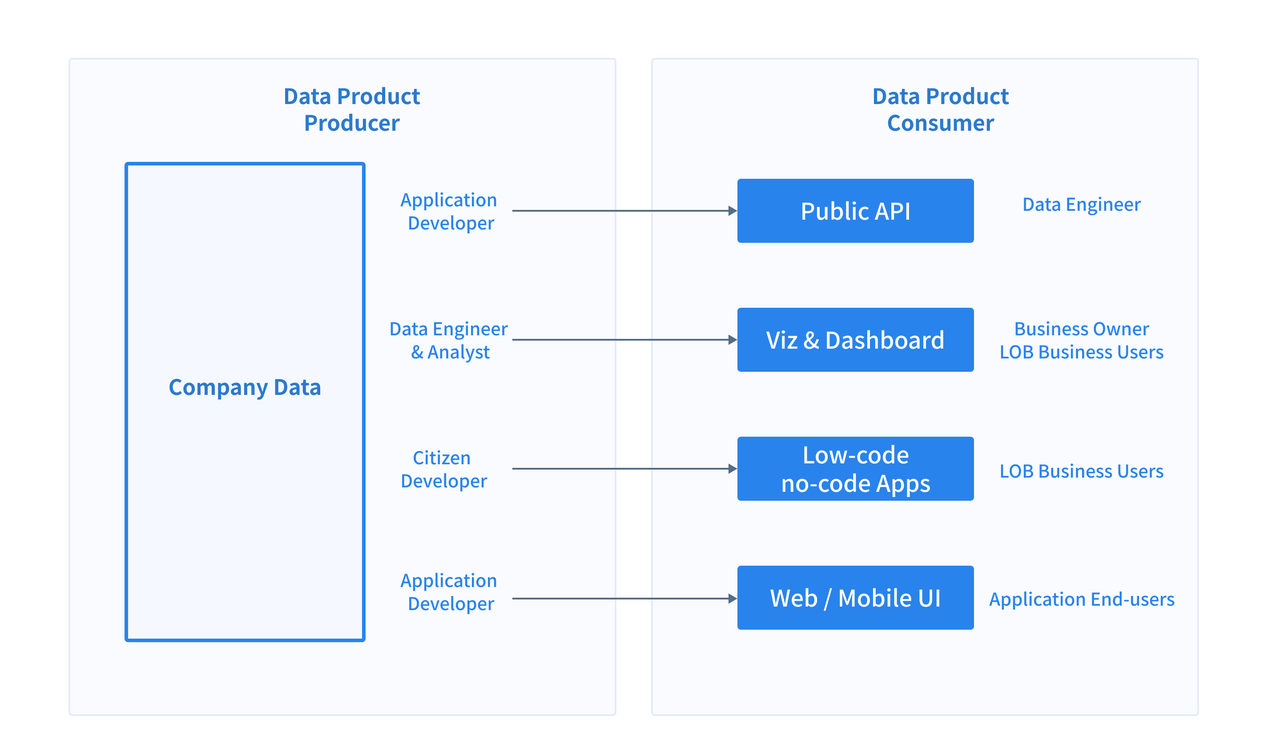© Copyright 2023 Quick Creator - All Rights Reserved

Different Types of Data Producer and Data Consumer
Introduction
In today's digital age, data is being generated at an unprecedented rate. Businesses need to understand how to manage this data effectively to stay competitive and meet the needs of their customers. This is where data consumers and data producers come into play. Data consumers are individuals or entities that use or consume data for various purposes, while data producers are individuals or entities that create, collect, or generate data. Understanding the roles of both these groups is essential for effective data governance and creation strategies.
In recent years, there has been a growing recognition of the importance of enabling both data consumers and producers within a company. By doing so, businesses can take advantage of the benefits offered by the emerging "data economy." Maintaining data assets is a cost but turning them into products generates business value (and revenue). Moreover, having agile and flexible business models allows products to scale with business expansion but not the data itself as it cannot be scalable without a companion architecture.
Democratizing your company's data also offers significant benefits by allowing everyone within your organization to interact with product offerings rather than just datasets. This creates opportunities for innovation while also improving collaboration between departments.
Who are Data Consumers
Data consumers refer to individuals or entities that use or consume data for various purposes. In today's digital world, data is generated at an unprecedented rate, and businesses need to leverage this data to gain insights into their operations and customers. Data consumers can be anyone from marketing teams who use customer data to create targeted campaigns, to financial analysts who use financial data to make investment decisions.
Definition of Data Consumers
Data consumers are essential players in the big data ecosystem. They are responsible for making sense of the vast amounts of data generated by businesses and turning it into actionable insights. These insights can help organizations improve their processes, increase efficiency, and drive growth. Data consumers rely on data producers for obtaining the required data. Without reliable and high-quality data, it would be impossible for them to perform their tasks effectively.
Data Needs and Preferences of Data Consumers
Data consumers may have different needs and preferences when it comes to the type of data they require. For example, marketing teams may need customer demographic information such as age, gender, income level, etc., while sales teams may need information on customer buying behavior patterns. Financial analysts may require financial performance metrics such as revenue growth rates, profit margins, etc., while operations teams may need information on supply chain management.
Moreover, the preferences of data consumers can vary with respect to how they want the information presented. Some may prefer visual representations such as graphs and charts while others may prefer raw numerical values in spreadsheets or databases. Therefore, it is crucial for businesses to understand the specific needs and preferences of their data consumers so that they can provide them with accurate and relevant information in a format that is easy for them to understand.
Who are Data Producers
Data producers are individuals or entities that play a vital role in the data economy. They create, collect, or generate data that is then used by data consumers for various purposes. This can range from businesses collecting customer data to researchers gathering scientific information.
Definition of Data Producers
As mentioned earlier, data producers are those who create, collect, or generate data. This can include individuals such as scientists conducting experiments and collecting research data. It can also include businesses that gather customer information through surveys or sales transactions.
In today's world where big data is king, data producers have become an essential part of any organization's success. Without accurate and reliable data, businesses would struggle to make informed decisions and create effective strategies. As such, it is crucial for data producers to ensure that the quality of their data is high and that they comply with regulatory requirements for its collection and use.
Critical Elements for Implementing Self-Service BI Analytics
Get the Free Report: RT Insights report talks about democratizing self-serve data analytics at scale via the BI tool of a user’s choice.
Benefits of Enabling Data Consumers and Producers
Enabling data consumers and producers within a company can provide numerous benefits, including the creation of a data economy. Maintaining data assets is a cost for businesses, but turning them into products generates business value and revenue. By enabling data producers to create valuable datasets that can be used by data consumers, companies can monetize their data assets. This also allows for the development of new products and services based on the insights gained from analyzing large amounts of data.
Another benefit of enabling both data consumers and producers is the ability to maintain an agile and flexible business. Products can scale with business expansion, but not the data itself. Without a companion architecture, it is difficult to scale up datasets to meet increasing demand. By enabling both groups, businesses can ensure that their datasets are scalable and able to meet changing needs.
Enabling both groups also helps democratize access to data within a company. Everyone can interact with a product, but not necessarily with a dataset. By creating products based on datasets created by producers, businesses can make insights available to everyone in the organization. This ensures that decisions are made based on accurate information rather than assumptions or incomplete information.
In addition to these benefits, enabling both groups also requires careful attention to data governance. Data producers need to ensure that their datasets are reliable and high-quality so that they can be used effectively by consumers. Producers may also need to comply with regulatory requirements for data collection and use, which adds another layer of complexity to managing datasets.
Conclusion
In conclusion, understanding the roles of data consumers and data producers is crucial for any business that deals with big data. By enabling both parties to work together, companies can create a thriving data economy, build agile and flexible businesses, and democratize their data. Data governance strategies are essential for ensuring that both data consumers and producers benefit from the use of data. As the volume of data continues to grow, it is becoming increasingly important for organizations to adopt effective data creation and management techniques. By doing so, they can unlock the full potential of their data assets and gain a competitive advantage in today's digital marketplace.
